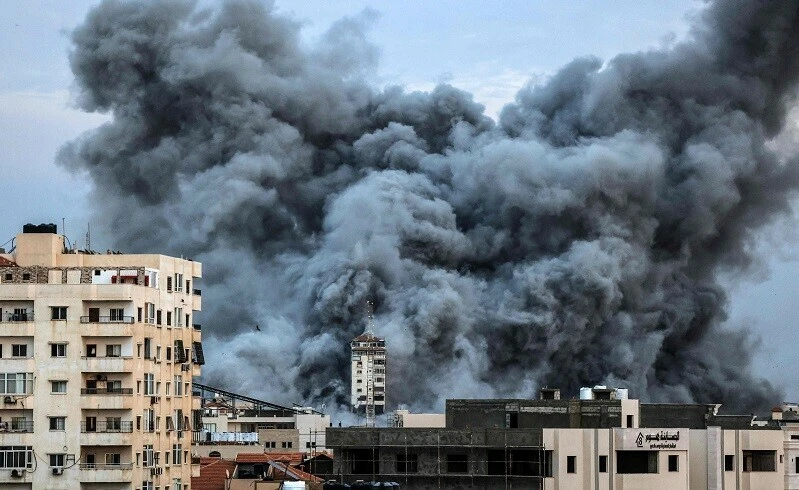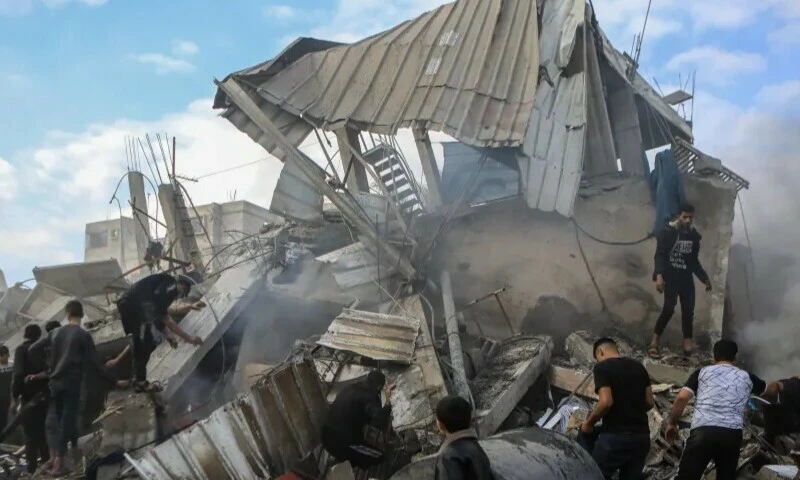bloodshed in Gaza:
The escalating Ramadan violence in Gaza underscores the urgency for international intervention. The sacred month of Ramadan, a time for spiritual reflection and peace, is marred by ongoing violence and bloodshed in Gaza. Despite fervent pleas from the international community for a ceasefire, Israel continues its relentless bombing and firing, resulting in a tragic loss of life. In the past 24 hours alone, 72 Palestinians, including innocent children, have been martyred, further exacerbating an already dire situation.
Failed Attempts at Ceasefire:
The tragic toll of Ramadan violence in Gaza demands immediate attention and action. Efforts to broker a ceasefire before Ramadan, spearheaded by countries like Qatar, Egypt, and the United States, have yielded little success. Despite diplomatic pressure and appeals for humanitarian considerations, Israel persists in its military aggression. The anticipated diplomatic efforts in the first half of Ramadan to secure a ceasefire seem to be faltering in the face of Israel's unyielding stance.
Casualties and Conflict:
The toll of this prolonged conflict is devastating. Israeli forces have not spared even the youngest lives, with reports of children among the casualties. In Jerusalem, three Palestinians, including a young boy, were fatally shot by Israeli soldiers, adding to the mounting death toll. The situation remains tense near the Jenin Refugee Camp in Gaza, with continuous gunfire exchanges between Hamas and Israeli forces.
Humanitarian Crisis:
The cycle of Ramadan violence in Gaza perpetuates the suffering of innocent civilians, challenging hopes for peace. Beyond the tragic loss of life, Gaza is grappling with a worsening humanitarian crisis. Since the onset of hostilities on October 7th, the number of Palestinian casualties has surpassed 31,000, with over 1,100 deaths reported in Israel due to Hamas' attacks. Both Palestinians and Israelis endure the harrowing effects of hunger, disease, and displacement amidst the relentless violence.

International Responses:
Calls for action resonate on the global stage as US senators urge President Biden to halt arms shipments to Israel. Australia, too, joins the chorus, urging Israel to reconsider its military tactics. However, despite mounting international pressure, there is little indication of a shift in Israel's approach or a willingness to engage in meaningful peace talks.
Hezbollah's Role:
The recent meeting between Hezbollah's leadership and Hamas signals broader regional implications. Hezbollah's vocal support for Hamas' military efforts underscores the complexities of the conflict and the involvement of various regional actors. Hezbollah's pledge to stand by Hamas in its resistance against Israeli aggression adds another layer of complexity to an already volatile situation.
Israeli Stance:
Israel remains resolute in its determination to neutralize Hamas through ground operations in Rafah and other strategic measures. The Israeli Defense Minister's statements reflect a steadfast commitment to safeguarding Israeli interests and eliminating perceived threats, including Hezbollah's presence in Lebanon. Despite international scrutiny, Israel remains steadfast in its military objectives.
Regional Impact:
The repercussions of the Israel-Hamas conflict extend beyond Gaza, with neighboring Lebanon bearing a significant brunt. Since the outbreak of hostilities in 2023, Lebanon has witnessed a staggering number of fatalities, including civilians caught in the crossfire. Border clashes and sporadic violence continue to claim lives on both sides, further destabilizing the region.
Stalled Negotiations:
Qatar's recent assertion that Israel and Hamas are far from reaching a ceasefire agreement underscores the profound challenges facing peace negotiations. The lack of consensus on key issues prolongs the suffering of civilians and exacerbates tensions in the region. Despite diplomatic efforts, a resolution seems elusive, leaving millions in Gaza and beyond trapped in a cycle of violence and despair.
Conclusion:
The heart-wrenching scenes of Ramadan violence in Gaza highlight the need for a lasting ceasefire. As Ramadan unfolds against a backdrop of death and destruction in Gaza, the urgency for a ceasefire and meaningful dialogue has never been more pressing. The international community must redouble its efforts to address the root causes of the conflict and alleviate the suffering of civilians caught in the crossfire. Failure to act decisively risks further escalation and a deepening humanitarian catastrophe in Gaza and beyond.

